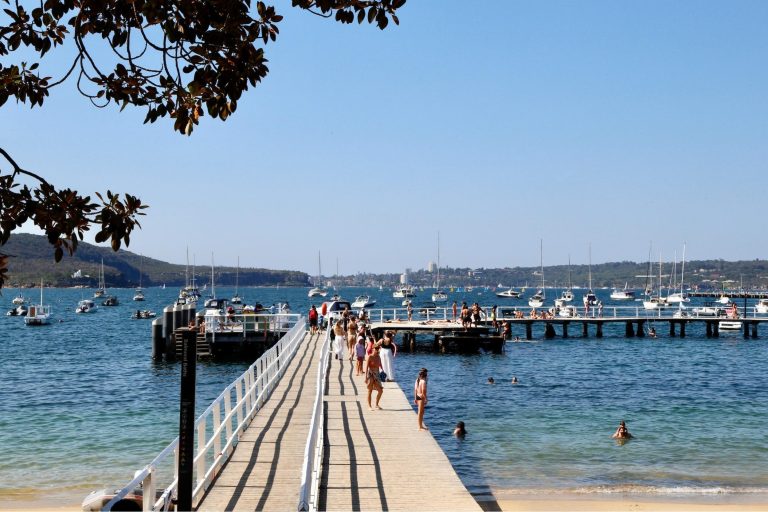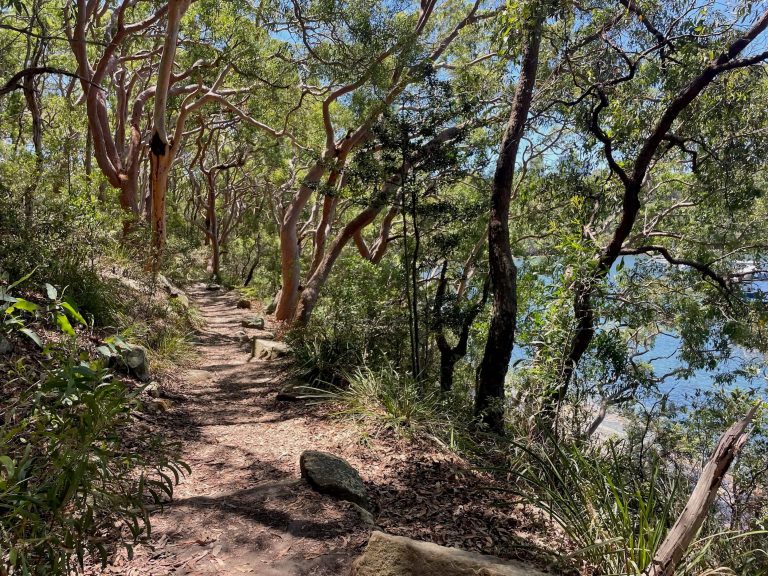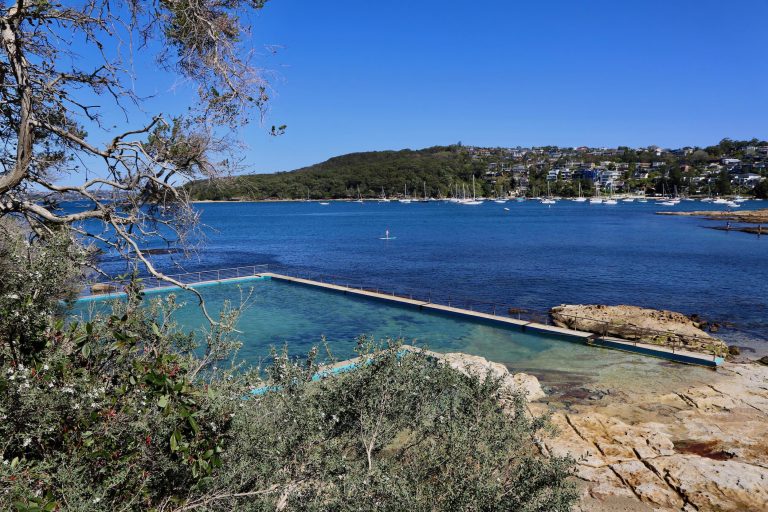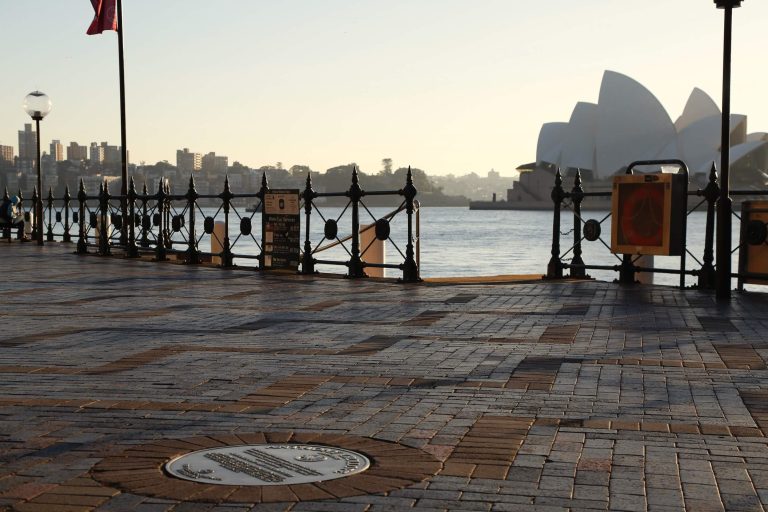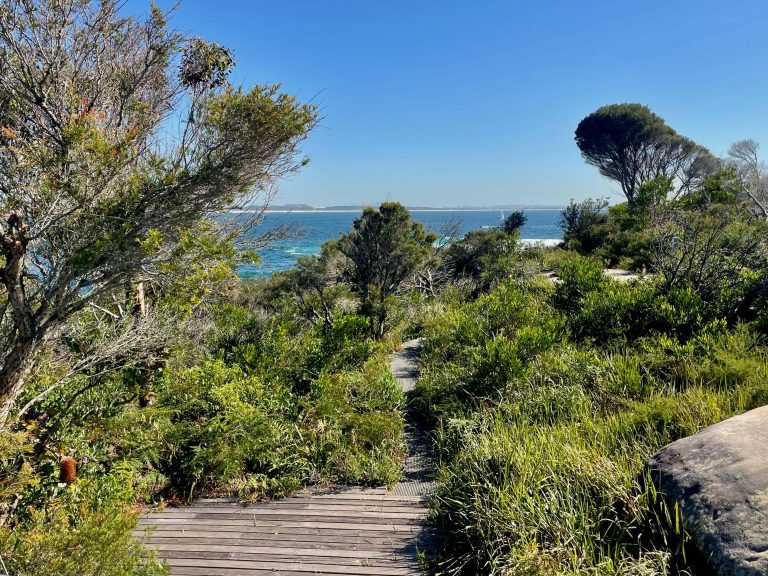The Brickpit Ring Walk at Olympic Park might be Sydney’s most unusual walk.
The circular walkway is elevated 18m above what was once a brickworks but today is habitat for the endangered green and golden bell frog. Panels along the pathway pay homage the site’s industrial past and provide an education on the old brickpit’s present-day amphibian residents.
At just 550 metres around and with public transport and parking nearby, the Brickpit Ring Walk is a fun and easy Sydney walk the whole family can enjoy.
| Distance: | 550 metres |
| Start: | Off Marjorie Jackson Parkway |
| End: | Off Marjorie Jackson Parkway |
| Public Transport: | Trains and buses at Sydney Olympic Park Ferries at Sydney Olympic Park wharf |
| Water: | Shops at Marina Square at Wentworth Point Sydney Olympic Park ferry wharf Various refill stations and bubblers around Olympicc Park precinct |
| Toilets: | Sydney Olympic Park train station Sydney Olympic Park ferry wharf |
| Top Tip: | Fun fact, if you take the ferry, you’ll be following part of the original route the bricks took after production when they were transported by barge from Homebush Bay down the Parramatta River to a depot at Blackwattle Bay. |
Brickpit Ring Walk Overview
Located at Sydney Olympic Park (and a short walk from its trains, buses, and ferries), the Brickpit Ring Walk is a 550m walk on a pathway that is elevated 18m above the quarry turned wetland below.
When the brickworks closed in 1988, the site was disused for a number of years. In the 1990s as Sydney prepared to welcome the Olympic Games in 2000, the site was dismissed as a development venue when it was discovered that the green and golden bell frog had taken up residence in the abandoned quarry.
Today, the site has dual use with its ground level protected as frog habitat, and the elevated walkway providing a unique recreational space.
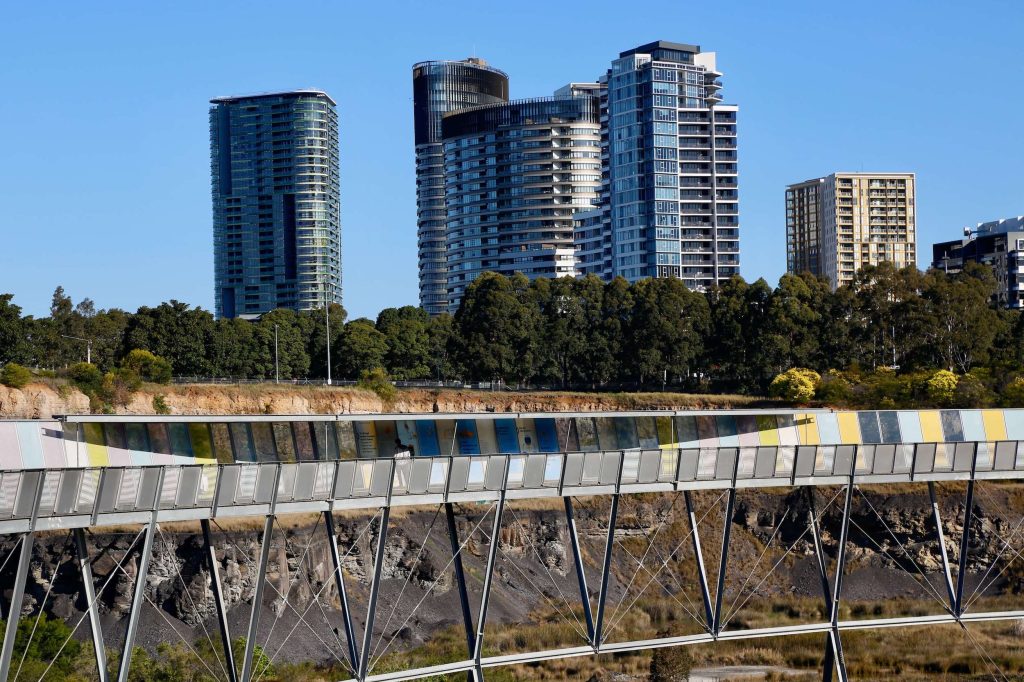
Brickpit Ring Walk Map
The Brickpit Ring Walk is a short looped path located off Marjorie Jackson Pathway at Sydney Olympic Park.
Facilities
The Brickpit Ring Walk is close to a number of locations with facilities including public toilets, drinking water, cafes, and shops such as:

Brickpit Ring Walk Highlights
It’s only 550m but you can learn plenty as you walk the Brickpit Ring Walk. The panels that enclose the elevated pathway include sections that share the history of the site when it operated as a brickworks, and education on the green and golden bell frog population present today.
Homebush Brickworks
During its years of operation—from its establishment in 1911 to its ultimate closure in 1988—Homebush Brickworks produced a whopping 3 billion bricks that were used in homes, hospitals, workplaces, schools, and prisons across Sydney.
The brickworks experienced many changes in its time, including the challenges of war-time and the Great Depression, ownership changes, boom-time years and innovation, regulatory controls to curb pollution and manage urban planning, and mechanisation. You can discover a summary of this history on the panels displayed along sections of the Brickpit Ring Walk.
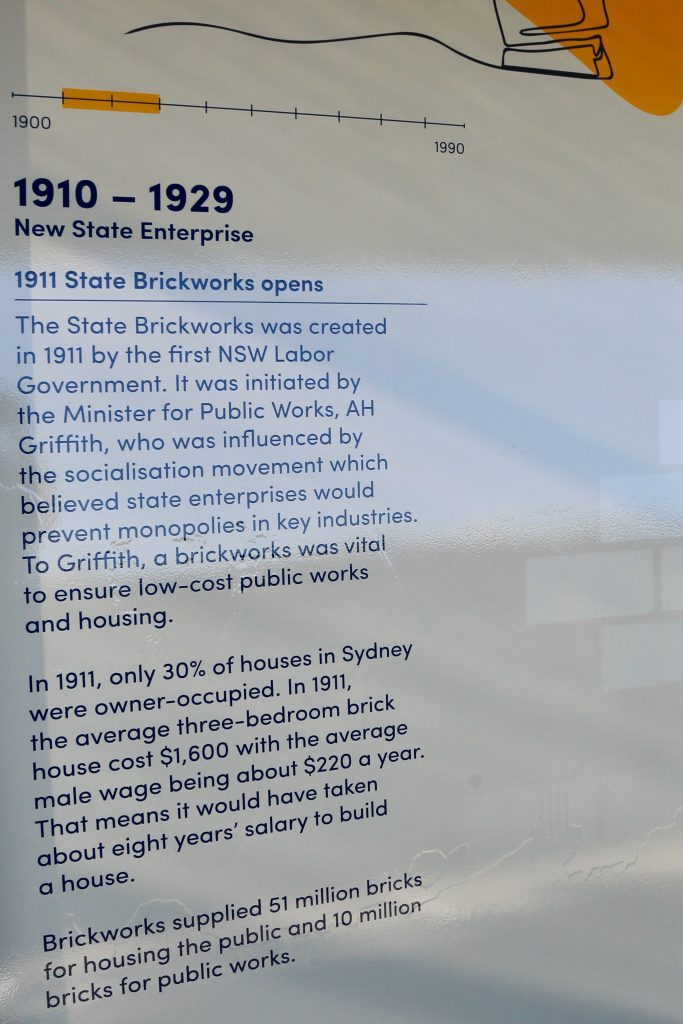
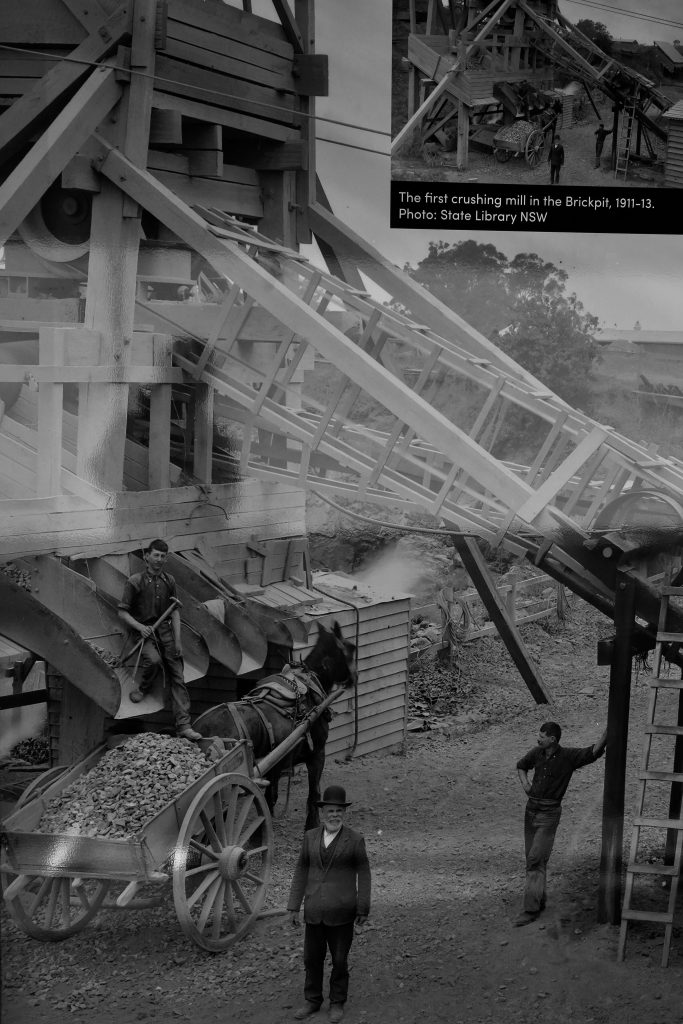
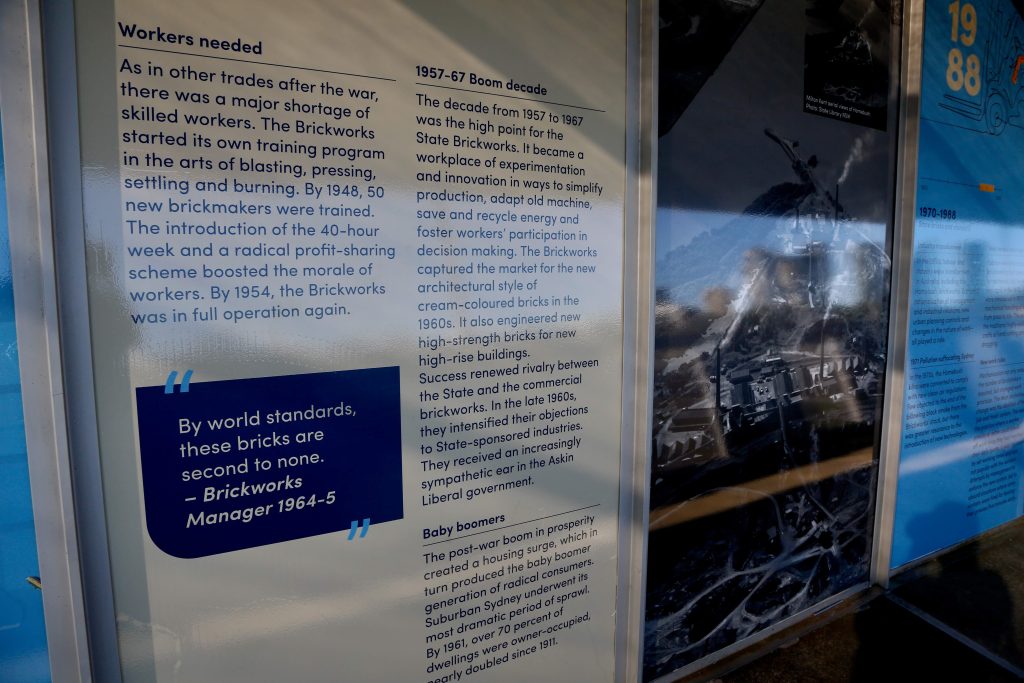
A few small buildings from the brickworks era remain in-situ, but much of the infrastructure was removed after 1988.
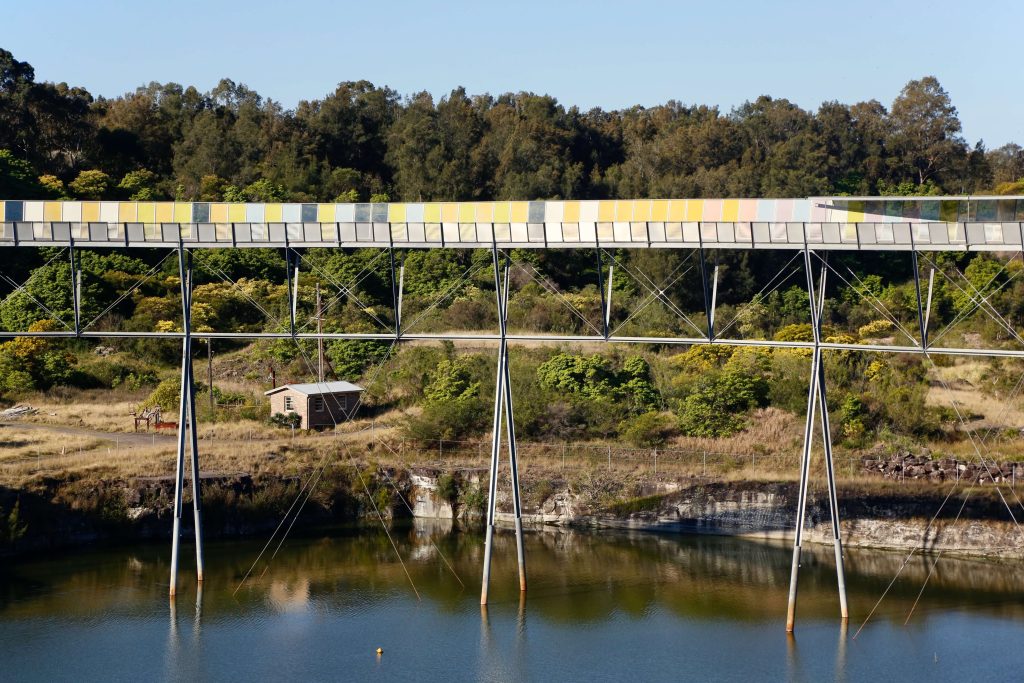
Green and Golden Bell Frog
Designated as endangered in NSW and vulnerable at a national level, the green and golden bell frog was at one-time common in eastern NSW. Urbanisation, disease, and predators contributed to habitat and population loss.
When the Homebush Brickworks closed down in the late 1980s, it left behind a site that, over a number of years, transformed from industrial ruins to a wetlands environment.
In the early 1990s when planning and development was underway to prepare the area for the 2000 Olympics, a population of green and golden bell frogs was discovered at the old brickworks site. Any consideration of putting a sports venue or anything else on the site was scrapped in an effort to protect what had become frog habitat, and in 2005, the Brickpit Ring Walk was built.
With declining populations of the frog, the brickpit site is managed to promote the conservation of the species. Habitat protection includes restoration through the removal of weeds, revegetation with native grasses, and active management of the ponds.
Info panel at the Brickpit Ring Walk
Aussies colours of ‘green and gold’ suit these little battlers.
Their green and gold patterns are unique to each frog, their frog prints are like our fingerprints. Frogs change skin colour as camouflage. Colour relates to activity, from sluggish brown to energised green with hyperactive gold stripes or spots.
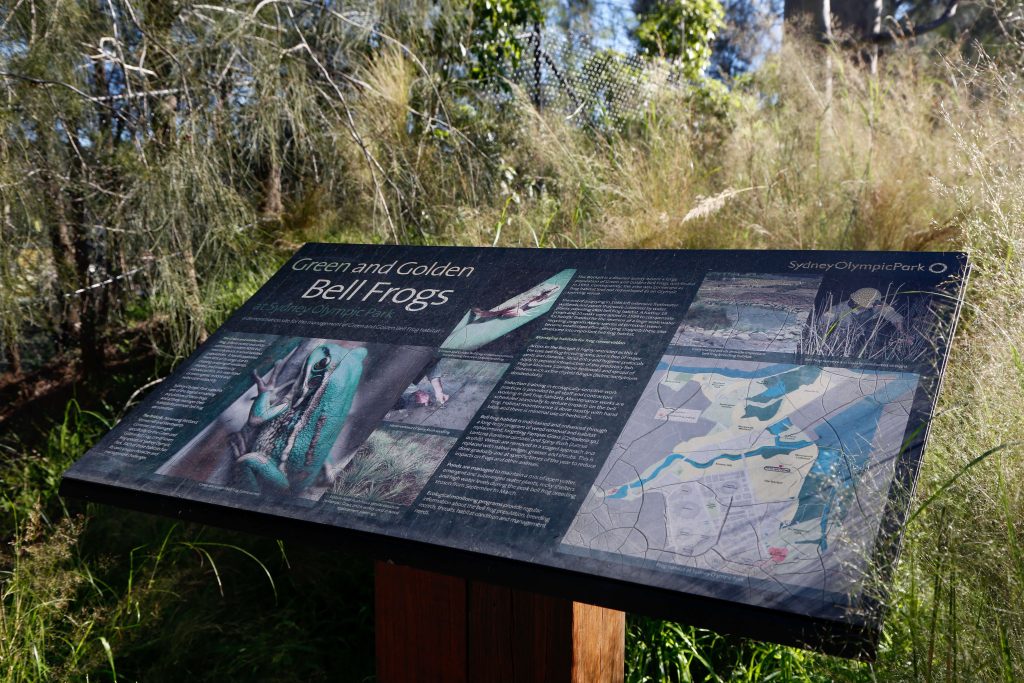
FAQs
What is the Brickpit Ring Walk?
The Brickpit Ring Walk is a short loop walk on an elevated circular pathway at Sydney Olympic Park.
How long is the Brickpit Ring Walk?
The Brickpit Ring Walk is about 550 metres in circumference making it a short stroll. There are signposted panels to read along the way that tell the history of the site as a brickworks and as habitat to the green and golden bell frog. Allow 20-30 minutes to walk the pathway, read the signs, and listen for the sound of the frogs below.
Where is the Brickpit Ring Walk?
The Brickpit Ring Walk is located off Australia Avenue and Marjorie Jackson Parkway at Sydney Olympic Park.
How do I get to the Brickpit Ring Walk?
There is parking available off Marjorie Jackson Parkway and public transport options include train, bus, or ferry to Olympic Park, followed by a short walk.
Can I take my dog to the Brickpit Ring Walk?
Dogs are not allowed at the Brickpit Ring Walk because it is designated as a wildlife protection area due to site being habitat for a population of green and golden bell frog.
Is the Brickpit Ring Walk free?
The Brickpit Ring Walk is a free Sydney attraction and is open daily between dawn and dusk.

